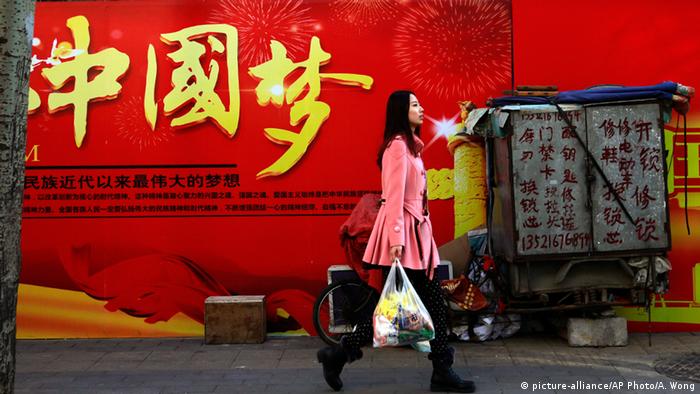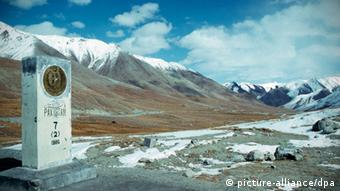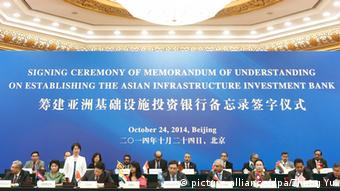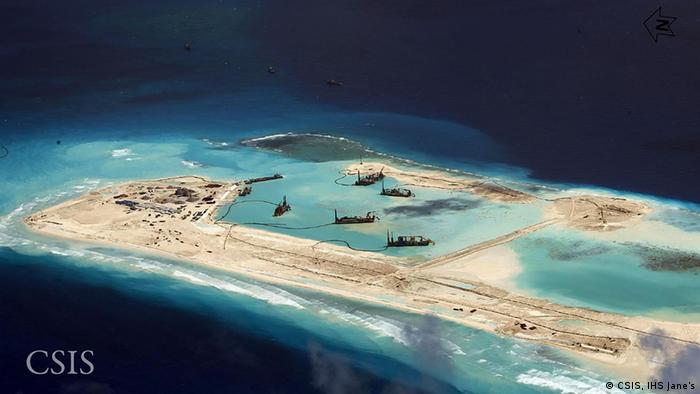Striving for Wealth and Truth in China, in Face of Monolithic Government
By JUDITH SHAPIROMay 28, 2014
野心與「剩女」碰到鐵板一塊的中國政府
野心與「剩女」,兩本書中的中國
書評JUDITH SHAPIRO2014年05月28日

歐逸文寫了被關押的異見分子劉曉波,圖為中國抗議者舉着他的畫像。
Tyrone Siu/Reuters
歐逸文(Evan
Osnos)的書《野心時代:在新中國追逐財富、真相和信念》(Age of Ambition: Chasing Fortune, Truth
and Faith in the New
China)中描繪了一些有事業心、勇敢無畏、富於創意的奮鬥者,而他本人似乎也有同樣的品質。他在中國做了八年引人矚目的報道,其中主要是為《紐約客》
撰稿;他努力找出有趣的人物進行採訪,從億萬富翁、「垃圾女王」張茵,到清掃他在北京所住那條馬路的一位清潔工詩人。他的關係網中有大受歡迎的博主韓寒,
他的網站擁有超過2.5億的訪問者;也有異見人士和諾貝爾和平獎獲得者劉曉波。還有很多不出名的人,比如邁克爾(Michael),他希望靠寫英語教材賺
錢,他的夢想和自我懷疑正好吻合中國當下的歷史時刻。
歐逸文寫道:「《野心時代》是在描述抱負和權威這兩種力量的衝
突。」此外,它也為一群為身份、價值與未來而極端焦慮的人群勾勒了引人入勝而令人憂慮的畫像。歐逸文筆下的中國被道德危機與激增的挫折感所撕裂,它的國民
極度渴望獲取財富,擔心到頭來一無所有。歐逸文寫道,共產黨的領導地位已經在道德上與智識上破產,其表面上的合法性只是建立在「繁榮換忠誠」這種不穩定的
交易之上。即便如此,「社會精英階層神話與寡頭政治現實之間的鴻溝日益顯形,愈發巨大。」
李陽,著名英語培訓者。
CHINATOPIX, via Associated Press
這本書關注對財產的追求(「財富」)、對異見的打壓(「真相」),
以及面臨道德危機的精神追求(「信念」)。為了闡明這些主題,歐逸文幾乎竭盡所能。他參加了一個中國人的旅行團,通過同行者的眼光去體會歐洲,注意到他們
「對世界狂熱的好奇,同時對於中國在這個世界上的新地位充滿防禦心的驕傲」。他去賭徒的聖地——澳門,探訪洗錢業與政府官員的腐敗。
他選擇的人物有着廣泛的政治立場:他和一個民族主義者、奉行新保守
主義的電視節目製作人交朋友,後來此人去上海就讀,成了哲學系的學生。他曾試過到山東採訪脾氣暴躁的盲人律師陳光誠,他幫助女性反抗獨生子女政策,後來陳
從軟禁中脫身,來到紐約後,兩人終於相見。他和富有的龔海燕結識,她因創辦相親網站而發財(究竟該說自己是個「一毛不拔的顧家男人」還是「酷小伙」,為歐
逸文帶來很多樂趣)。
書中有些人物出現了若干次,令讀者產生一種漸漸增強的感覺:中國已
經迷失方向。其中關於林毅夫的故事格外引人注目,這位台灣逃兵游泳橫渡台灣海峽,當上了世界銀行的首席經濟學家,後來又為中國的經濟繁榮唱讚歌,他的故事
構成一個有力的敘事線索。受迫害的藝術家艾未未的故事也是如此,他試圖把自己的生活變成藝術,推動現實可能性的底線,後來當局試圖鉗制他的言論,他遭到毆
打、囚禁,還被控告逃稅。

歐逸文。
Peter Marovich
人們似乎樂於捕捉任何成功的機會。李陽是「瘋狂英語」的創始人,主
張用大喊的方式來學習語言,有着搖滾明星般的地位,他認為英語非常重要,以至於成了「令人脫胎換骨的希望所在」。消費和腐敗密不可分:大多數垃圾郵件廣告
都是關於銷售假髮票的,與此同時,共產黨的不正當行為從一個山西官員身上可見一斑——他有四個老婆、十個孩子;此外,據統計,自1990年以來,有
18000名腐敗官員攜帶共計1200億美元的巨款潛逃。
歐逸文敏銳地捕捉到互聯網是如何改變了中國的政治面貌,抵制了政府
在公眾事件上操縱信息的努力。他追蹤報道了深圳兒童小悅悅的故事,她被一輛麵包車和一輛卡車碾過,但路人卻對此完全無視,她的死在中國的博客世界引發了一
場全國性的深思(最終一位大字不識、收破爛的長者停下來幫助小悅悅,但已經太遲了)。他講述了2011年溫州高鐵事故,政府試圖審查相關新聞,這件事最終
暴露出鐵路官員中程度驚人的腐敗、回扣與非法的工程轉包,成了「典型的政府績效失敗」。
博客寫作者和逃避審查者們的網絡世界,以及他們的「平行語言系統」
為事件帶來更可信的版本;有些使用中文雙關語來逃避禁用詞語的方式非常有趣。比如「草泥馬」這個詞的諧音是「對你的母親做不能說出口的事」,2009年,
它開始在網上廣泛傳播,作為對審查者試圖清除網絡低俗內容的回應。網民的帖子被刪了,就說自己被「和諧」了,這是指「創建和諧社會」的官方目標。

洪理達。
Nora Tejada
他通過短訊收到中宣部對新聞機構下達的最新禁令(由總部在加利福尼
亞的《中國數位時報》[China Digital
Times]發送到歐逸文的手機上)。有一條是這樣的:「所有網絡必須馬上刪掉如下文章《中國94%的人對財富高度集中表示不滿》」。之後,在「阿拉伯之
春」事件中,有一條是:「禁止將中東政治體制與我國政治體制相對比」。
《野心時代》里的很多重要人物在西方都很有名,但在中國卻罕為人
知。在某個反思的時刻,歐逸文寫下自己曾經為應該讓那些異見人士佔多大篇幅感到猶豫。「他們的不幸命運到底告訴了我們多少關於中國的情況?」他問「有多少
是由於環境,有多少是由於壓迫?對於一個局外人來說,從遠處觀看是很難判斷的,但我發現從近處看也未必會更容易,因為這有賴於你的視角。」最後歐逸文得出
結論,政府付出大量努力和開支,試圖讓這些人不為世人所知,這本身就是一種有力的證據,證明這些人的重要性。
洪理達(Leta Hong
Fincher)的《剩女》(Leftover
Women)對中國的奮鬥者們所面臨的壓力提供了一份非常不同,但同樣令人驚心的描述。她對渴望通過買房來鞏固中產階級地位的年輕都市女性特別感興趣。洪
理達是清華大學社會學的博士生,專門研究住房產權交易,這令她注意到後社會主義時期對女性結構性的經濟歧視。
洪理達認為,女人在25歲左右感受到壓力,接受不適宜的婚姻。她認
為,性別失衡、單身男人可能造成社會不穩定的潛在可能性,乃至沒有安全感的父母的焦慮導致了這一局面,如果她們延遲結婚就會被稱為「剩女」。由於父母與配
偶的壓力,這些女人被系統地剝奪了房子的所有權,必須把不動產記在丈夫名下,就算她們或她們的父母在買房中有很大貢獻也是如此。
在中國,三分之一的婚姻以離婚告終;最近一項最高法院的決議決定按
房契上的名字判定房產歸屬。中國女人在婚姻中,經濟上處於嚴重的不利地位,令她們容易受到虐待,在婚姻解體時也是如此。人們期望《剩女》能很快被翻譯成中
文,因為它似乎在受過教育的都市女性中很有共鳴。共產黨似乎已經忘記了毛時代的語錄:「婦女能頂半邊天。」
《野心時代:在新中國追逐財富、真相和信念》
歐逸文/著
403頁,法拉·斯特勞斯與吉魯科斯出版社(Farrar, Straus and Giroux),27美元。
《剩女:性別不平等在中國的復活》
洪理達/著
213頁,澤德出版社(Zed Books),24.95美元。
Judith Shapiro是《中國的環境危機》(China\'s Environmental Challenges)和《毛對自然的戰役》(Mao\'s War Against Nature)的作者。
翻譯:董楠
現代中國...
【大紀元2014年05月21日訊】(大紀元記者秦飛編譯報導)《紐約客》(The New Yorker)特約撰稿人奧斯諾斯(Evan
Osnos)原本考慮讓她的新書《野心的年齡:追逐財富、真理和信仰的新中國》(Age of Ambition: Chasing Fortune,
Truth, and Faith in the New
China)在中國出版,但經過中共審查者一番折騰後,她決定不在中國出版,建議中國讀者可買臺灣版本,並撰文猛批中共審查制度。
她寫道:“今年二月當我完成了一本關於中國的書籍後,上海一家出版公司向我要一份早期的副本,以便開始翻譯。這本書追蹤了一些我認識的人,一些是名人,因
為他們試圖改變自己在中國的生活--像一位農民的女兒,同時也是女企業家的宮海燕(Gong
Haiyan),她設想自己‘爭分奪秒,在失去前搶佔先機。’”
上海一位編輯在讀了她的手稿後報以熱情的回應,但也發給她一份政治活躍人士的名單,寫道:“很難把這些人納入中國版本:律師陳光誠、作家慕容雪村、韓寒以及其他一些人。”他建議:“請讓我知道,是否有可能讓我們做一個特殊版本配合在中國出版。”她必須作出選擇。
她指出,在我們這個時代對中國的定義是互相矛盾的:世界最大的寶馬、捷豹和路虎車的買方市場,卻由共產黨統治。這裡有世界兩大最有價值的網路公司騰訊和百度,也是歷史上審查制度最嚴格的時代。中國既是全球最新的超級大國,也是最大的專制國家。
在中國大部份歷史時期,讀者被限制閱讀國外書籍。在上世紀60和70年代,黨內精英被正式禁止閱讀外國文學,學生卻以手抄本的形式傳播了塞林格、柯南道爾
等人的著作。過去30年來,外國作家的銷售量開始激增,這應歸功於中國消費者急切地想知道關於自己和世界的新資訊。根據2012年最新統計資料,中國的
580家出版社收購了超過1.6萬份外國著作的出版權,是1995年以來的近10倍 目前的暢銷書包括了瑪律克斯(Gabriel Garcia
Marquez)的《百年孤寂》以及基辛格(Henry A. Kissinger)的《論中國》。
但今天,要在中國出版一本書籍,外國作家必須接受出版社內部審查員的判斷,他們將判別名稱、術語和黨認為不奉承或威脅政治穩定的歷史事件。
當2006年中國版胡塞尼(Khaled Hosseini)的小說《追風箏的人》(The Kite
Runner)出版時,書中對蘇聯佔領阿富汗的關鍵參考被取消。(對中國作家來說,賭注是巨大的:他們要麼聽從限制,要麼失去在本國出版的能力。審查者可
以舉出所出版書籍“煽動顛覆國家政權”的證據。)如果出版社忽視了禁忌,新聞、出版、廣播電影電視總局能使書籍下架並嚴懲肇事者。類似的審查也適用於電視
節目、電影和電臺節目,政府也密切關注廣播,因為它能傳播給多數人。奧巴馬總統在第一次就職演說時提到了“面對法西斯主義和共產主義”的先輩,被中共國家
電視臺刪除了。“共產主義”這一詞沒有出現在中共媒體的報導中。
作者說自己曾於2005年至2013年在北京生活和寫作,但發現很難界定審查世界。儘管一些條例被透露給公眾--上月國務院新聞辦公室建議所有網站“找到
並刪除名為‘成都警方圍毆捍衛自己權利的房主的視頻”,多數審查世界是由不可告人的名稱以及故事組成的,通過本身是秘密的條例定義。
負責“思想工作”的最高機構中宣部不會公佈他們的活動:他們討厭被關注,因此他們在長安街的總部沒有位址或標記。為了量化中共審查制度的境界,卡內基.梅
隆大學(Carnegie Mellon
University)的研究人員在2012年調查了新浪微博的資訊,他們發現16%以上的微博因內容而被刪除。
關於中共審查世界眾所周知的事實是,它仍在增長。電影院每天在增多,好萊塢也必須刪減片斷來迎合他們。最新的007電影《天幕危機》的製片商刪除了一個殺
害中國保安的場景,以及哈威爾 巴登(Javier
Bardem)說他在中國的羈押期間成為惡棍的情節。《紐約時報》已在超過1年的時間裡無法為記者獲得新的居留簽證,因為他們報導了中共領導人的家庭財
富。彭博新聞也因對黨官進行調查而面臨同樣的報復。今年3月彭博資訊董事長格勞爾(Peter T.
Grauer)說公司“應重新考慮”商業新聞之外的決定,因為它損害了公司在中國的潛在市場。
但當她考慮在中國出書時,當地出版社逐漸提出了審查內容。北京一位元代理以公司代表的身份寫道:“為准許在中國出版,作家將同意修改四分之一的內容。”該
出版社已逐章歸納出有麻煩的片斷,以序言中的一行開始:“中國從未像現在這樣多元化、城市化和繁榮,但它是世界上唯一將諾貝爾和平獎獲得者關在監獄裡的國
家。”
一些禁忌是可預見的-出版社擔憂提到毛的“大躍進”,因為它導致3,000至4,500萬人在饑荒中死亡。另一些問題則很微妙,由於共產黨將經濟成就歸功
於鄧小平,作者被建議不要向他的同齡人提出太多讚美。審查者在逐章閱讀後,憤怒道:“第14章:整個一章都是關於陳光誠。”
在一些例子中,審查者的要求令她驚訝:為什麼討論前政治人物薄熙來會很敏感?敏感之處似乎在於如何提到這個問題,以及提多少。當歷史的官方版本已經寫好,一個非官方的版本則變得不受歡迎。
一位外國作家如果希望在中國出版書籍,就必須找到很多理由來忍受審查要求。一本書,即使已妥協,也能發出新一代的讀者尋求超越國界的資訊 它的版費收入可能幫助作者支付下一本書的費用等等。
但這些理由無法超越一個必然問題。關於當代中國的寫作中最難的一部份是捕捉它的比例:故事中有多少真正鼓舞人心的,多少是真正冷酷的?其價值有多少被創作
技術和自我創造所反映,以及其價值有多少在“長城防火牆”和濫用職權中被體現?將接受審查作為利潤問題來考慮,從而修剪,留下故事的核心不變,但正當中國
在根本上選擇其將變成一個什麼樣的國家時,改變描繪中國的比例將給世界一個虛假的反映。
很有水準的一本書,近年來難得一件的好書!翻譯更是了不起,看不出來是翻譯的洋文書。對於參與中國十五年來的「大躍進」,和兩岸開放之初便造訪過的我來說,更是有所體會,心有戚戚焉。可惜,作者對於中國政治文化的不深入,留下了許多「做作」卻已有定見的問題...Lucian Pye應該在約莫三十年前,就提過研究中國政治文化有兩個切入點,面子與幫派(非黑社會那種,或許用『掛』更傳神),就不會文句中隱含著批判與不欣賞的態度了。如果作者對於中國共產黨發跡到現在的歷史,有著更深的背景認識,也應該更能對他自己的疑惑或者不解而有所解答。就經驗與訪談功力而論,作者一本書可以橫掃台灣現在所謂的各種記者。用心與專業,在本書上體現地一覽無遺!其實他應該在親身經歷之外,多讀兩本書,那麼對於讀者了解中國共產黨和中國,將會有更大的幫忙:「二十年目睹之怪現狀」與「官場現形記」。研究中國政治變遷的人,至少必須知道明、清兩朝的官制與官場文化,這樣很多「萬變不離其宗」的中國共產黨現象,就能迎刃而解!結論是,值得一讀,推薦給我的朋友們!
2014.5.5
http://www.amazon.com/Age-Ambition-Chasing-Fortune-Truth/dp/0374280746
我在Amazon 讀Age of Ambition: Chasing Fortune, Truth, and Faith in the New China by Evan Osnos第4-6頁,知道這是本不可多得的佳作,譬如說,中共是改革開放1978-2013 (人均200美元到6000)的最大受益者;比起英國的產業革命,中國現代化的規模是其百倍,速度是10倍......
----
Opinion
China’s Censored World
By EVAN OSNOS May 05, 2014
觀點
親歷中國的出版審查
歐逸文 2014年05月05日
In February, while I
finished work on a book about China, a publishing company in Shanghai
asked for an early copy, in order to begin a translation. The book
follows people I’ve come to know, some prominent, others not, as they
try to change their lives in a country throbbing with possibility —
individuals like Gong Haiyan, a farmer’s daughter and businesswoman who
envisions herself in a “race against the clock, to seize the initiative
before it’s lost.”
今年2月,在我寫完了一本有關中國的書之
後,上海的一家出版公司管我要了一份書稿副本,以便開始翻譯。這本書關注了一些我認識的人,其中既有名人,也有普通人。在一個充滿可能性且富有活力的國度
里,這些個體努力改變着自己的人生——比如龔海燕,她是一個農民的女兒,也是一個「為了不讓機會溜走,要求自己與時間賽跑」的女商人。
After reading the
manuscript, an editor in Shanghai replied with enthusiasm, but also sent
me a list of politically active people in the narrative who, he wrote,
“would be difficult” to include in the Chinese edition: a lawyer (Chen
Guangcheng), an artist (Ai Weiwei), three writers (Liu Xiaobo, Murong
Xuecun, Han Han) and “a few others.” He made a proposal: “Please kindly
let me know if it is possible for us to cooperate on a special version
of your book for its Chinese publication.” I had a choice to make.
在讀完書稿之後,上海的一名編輯熱情地回
復了我,但同時也發給了我一份名單,列出了書稿中提到的政治活躍人士的名字,他寫道,中文版會「很難」包括這些人的名字:一位律師(陳光誠)、一位藝術家
(艾未未)、三位作家(劉曉波、慕容雪村、韓寒),以及其他幾個人。他提出了一個建議:「請告訴我,我們是否可以合作推出一個專門針對中國的特殊版本。」
我必須做出選擇。
The defining fact
of China in our time is its contradictions: The world’s largest buyer of
BMW, Jaguar and Land Rover vehicles is ruled by a Communist Party that
has tried to banish the word “luxury” from advertisements. It is home to
two of the world’s most highly valued Internet companies (Tencent and
Baidu), as well as history’s most sophisticated effort to censor human
expression. China is both the world’s newest superpower and its largest
authoritarian state.
當今中國的一個關鍵事實,就是它的種種矛盾:這個國家購買了最多的寶馬(BMW)、積架(Jaguar)和路虎(Land
Rover),而執政的中國共產黨卻禁止在廣告中使用「奢侈」一詞。這個國家擁有市值在世界上躋身前列的兩家互聯網公司(騰訊和百度),同時也擁有歷史上
最成熟的言論審查系統。中國既是世界最新興的超級大國,也是最大的威權國家。
For most of Chinese
history, readers had limited access to books from abroad. In the 1960s
and ’70s, when foreign literature was officially restricted to party
elites, students circulated handwritten, string-bound copies of J.D.
Salinger, Arthur Conan Doyle and many others. But in the past three
decades, rules have relaxed somewhat and sales of foreign writers have
ballooned, thanks to Chinese consumers who are ravenous for new
information about themselves and the world. In 2012, the most recent
year for which statistics are available, China’s 580 state-owned
publishers acquired the rights to more than 16,000 foreign titles, up
nearly tenfold since 1995; current hot sellers range from Gabriel García
Márquez’s “One Hundred Years of Solitude” to Henry A. Kissinger’s “On
China.”
在中國歷史的大部分時期,讀者們獲得外國
書籍的渠道都相當有限。上世紀60、70年代,只有中共精英才有權閱讀外國的文學著作,學生們則傳閱着手寫線裝的J·D·塞林格(J.D.
Salinger)、阿瑟·柯南·道爾(Arthur Conan
Doyle)以及許多其他作家的作品。但過去30年,限制已經有所放鬆,外國作家作品的銷量出現了激增,這都源於中國消費者對有關自身和外部世界的更多信息的渴望。據可以得到的最新數據,2012年,中國580家國有出版社獲得了超過1.6萬種外國圖書的版權,是1995年的幾乎10倍;許多外國作家的著
作在中國成為暢銷書,包括加夫列爾·加西亞·馬爾克斯(Gabriel García Márquez)的《百年孤獨》(One Hundred
Years of Solitude),以及亨利·A·基辛格(Henry A. Kissinger)的《論中國》(On China)。
Ever since the
reign of the first emperor, who oversaw the burning of Confucian texts
in 213 B.C., Chinese leaders have valued the science of censorship. To
release a book in China today, foreign authors must accept the judgment
of a publisher’s in-house censors, who identify names, terms and
historical events that the party considers unflattering or a threat to
political stability.
自從中國始皇帝的統治以來,中國的領導者一直重視審查制度。公元前213年,這位皇帝下令焚燒了儒家的著作。如今,要想在中國出版一本書,外國作家必須接受出版社內部的審查員的評判。這些審查員會從書中找出中共認為使其面上無光或威脅政治穩定的人名、詞彙及歷史事件。
When the Chinese
edition of Khaled Hosseini’s novel “The Kite Runner” was published in
2006, critical references to the Soviet occupation of Afghanistan were
removed. (For Chinese authors, the stakes are incomparably larger; they
either heed restrictions or lose the ability to publish in their home
country. Prosecutors can cite published writing as evidence of
“incitement to subvert state power.”) If publishers overlook a taboo,
the State Administration of Press, Publication, Radio, Film and
Television can pull books from the shelves and punish those responsible.
Similar scrutiny applies to television shows, films and radio programs,
and the government keeps an especially close eye on broadcasting,
because it reaches the most people. When President Obama, in his first
inaugural address, mentioned earlier generations who “faced down fascism
and Communism,” China’s state broadcaster cut away. The word
“Communism” did not appear on transcripts published in the Chinese
press.
當2006年卡勒德·胡賽尼
(Khaled Hosseini)的小說《追風箏的人》(The Kite
Runner)的中文版出版時,書中提到蘇聯佔領阿富汗的關鍵內容都被刪除了。(中國作家付出的代價要大得多,簡直無法相提並論;他們需要接受各種限制,
否則會被禁止在自己的國家出書。檢察官可以把出版作品作為「煽動顛覆國家政權」的證據。)如果出版商在審查時漏掉了一個敏感詞,國家新聞出版廣電總局有權
令圖書下架,並懲罰責任人。類似的嚴密審視也適用於電視節目、電影和廣播節目,政府格外密切地關注着廣播電視,因為其受眾最多。當美國總統奧巴馬在首次就
職演說中說到前輩們「擊敗了法西斯主義和共產主義」,中國的國有電視台立即切換了鏡頭。「共產主義」一詞沒有出現在中國媒體刊登的演講全文里。
Living and writing
in Beijing from 2005 to 2013, I found that the precise boundaries of the
censored world were difficult to map. Though some rules leak to the
public — last month, the State Council Information Office advised all
websites to “find and remove the video titled ‘Actual Footage of Chengdu
Police Surrounding and Beating Homeowners Who Were Defending Their
Rights”’ — most of the censored world is populated by unmentionable
names and untellable stories, defined by rules that are themselves
secret. The Central Propaganda Department, the highest-ranking agency
responsible for “thought work,” does not report on its activities; it is
so averse to attention that its headquarters, on the Avenue of Eternal
Peace, have no address or sign. To quantify one realm of Chinese
censorship, researchers at Carnegie Mellon University, in 2012, studied
messages on Sina Weibo, the social media site. They found that more than
16 percent of all posts were deleted because of the content.
從2005到2013年,我一直在北京生
活和寫作,我發現很難精確地描繪出審查範圍的界限。儘管一些規定被公眾得知——上個月,國務院新聞辦建議所有網站「找出並刪除標題為』實拍成都警察被指圍
毆維權業主』的視頻」——處於審查範圍中的主要是不可提及的名字和不可告人的故事,界定它們的規定本身就是秘密。負責「思想工作」的最高機構——中共中央
宣傳部從不公開自己的活動;它是如此討厭關注,以至於它位於長安街上的總部大樓上既沒有門牌號也沒有標牌。為了對中國審查制度的一個方面進行量
化,2012年,卡內基梅隆大學(Carnegie Mellon
University)的研究人員研究了社交媒體網站新浪微博上的信息。他們發現,有超過16%的帖子因為內容敏感而被刪除。
One known fact
about China’s censored world is that it is growing. Movie theaters are
proliferating by the day, and Hollywood makes the cuts required to reach
them. The makers of “Skyfall,” the latest James Bond film, removed a
scene involving the killing of a Chinese security guard, and a plot line
in which Javier Bardem says he became a villain during his time in
Chinese custody. The New York Times has been unable to receive new
residency visas for journalists for more than a year, because it
reported on the family wealth of Chinese leaders. Bloomberg News is
facing similar retaliation for its investigations of party officials. In
March, the Bloomberg L.P. chairman, Peter T. Grauer, said the company
“should have rethought” the decision to range beyond business news,
because it jeopardized the company’s potential market in China.
關於中國的審查制度的一個已知事實是,它
正在不斷擴大。電影院的數量正日益增長,為了達到審查要求,好萊塢會對影片內容進行刪減。最新的詹姆斯·邦德(James
Bond)系列電影《大破天幕殺機》(Skyfall)的製作方為此就刪掉了一名中國保安被殺死的鏡頭,還刪掉了賈維爾·巴爾登(Javier
Bardem)說自己在中國被關押期間變成了一個惡棍的情節。由於報道了中國領導人的家庭財富,《紐約時報》(New York
Times)一年多以來都無法為記者獲得新的居留簽證。由於對中共官員進行的調查,彭博新聞社(Bloomberg
News)也遭到了類似的報復。今年3月,彭博資訊公司(Bloomberg L.P.)董事長高逸雅(Peter T.
Grauer)說,公司「應該重新考慮」在商業新聞之外進行其他報道的決定,因為這破壞了公司在中國的潛在市場。
But as I considered
publishing a book in China, local publishers gradually filled in a road
map of the censored world. On behalf of a company in Beijing, an agent
wrote, “To allow the publication in China, the author will agree to
revise nearly 1/4 of the contents.” The publisher had itemized trouble
spots chapter by chapter, beginning with a line in the prologue: “China
has never been more pluralistic, urban, and prosperous, yet it is the
only country in the world with a winner of the Nobel Peace Prize in
prison.” (The first half of the sentence could stay.)
然而,我考慮在中國出書的同時,中國的出
版商逐漸為我勾勒出了審查範圍的邊界。北京一家公司的代表寫道,「為了讓著作在中國出版,作者必須同意改動將近四分之一的內容。」這家出版商分章節逐條記
載了有問題之處,從前言的一句話開始:「中國從未像現在這樣多元、繁榮和城市化,但它卻是目前世界上唯一一個把一名諾貝爾和平獎得主關在獄中的國家。」
(這句話的前半句可以保留。)
Some taboos were
foreseeable; the publisher worried about a mention of Mao’s Great Leap
Forward, because that project resulted in a famine that killed between
30 and 45 million people. Other problems were subtler; since the party
credits its economic success to Deng Xiaoping, I was advised not to
lavish too much praise on the contributions of his peers. Judging by the
notes, the censor seemed to grow exasperated: “Chapter 14: The whole
chapter is about Chen Guangcheng.” (I write about Mr. Chen, a blind
lawyer now in exile in the United States, as an example of Chinese
determination to defy the circumstances of birth.)
一些內容被禁是可以預見的;出版商對一處
提到毛澤東「大躍進」的地方表示擔憂,因為這項運動引發的饑荒令3000萬到4500萬人死亡。還有一些問題則比較微妙;由於中共把經濟上的成就歸功於了
鄧小平,我得到的建議是,不要對其同僚的貢獻給予過多讚美。從注釋來看,審查人員似乎越發被激怒了:「第14章:整章都是關於陳光誠的。」(我寫到了陳光
誠,目前在美國流亡的盲人律師,來展示一些出身卑微的中國人改變命運的決心。)
In some cases, the
censors’ requirements startled me: The former politician Bo Xilai, a
one-time rising star now serving a life sentence for corruption, was
convicted in a trial covered by state television, so why is discussion
of him sensitive? The problem, it seemed, is how it can be mentioned,
and how much. When an official version of history has been written, an
unofficial version becomes unwelcome.
有時,審查人員的要求讓我吃驚:國有電視
台對前中共高官薄熙來的庭審過程進行了報道,他曾是冉冉升起的明星,目前因為腐敗被判無期徒刑,那為什麼對這件事的討論是敏感內容呢?問題似乎在於談論這
件事的方式,以及談論的篇幅。當官方提供了一個歷史的版本之後,非官方的版本就不受歡迎了。
A foreign author
who wants to publish in China can find many reasons to tolerate the
demands for censorship. A book, even compromised, might inspire a new
generation of readers to demand information from beyond their borders;
it might help pay for the writing of the next book (or, let’s face it, a
new roof). As a writer, it is tempting to rationalize the discomfort by
emphasizing the percentage of the book that survives the cuts, rather
than the percentage that is censored.
想要在中國出書的外國作家能找到許多理由
來容忍審查要求。一部作品即使被刪減,也可能會激發新一代讀者對國界之外的信息的渴望;這本書還可能資助其下一部作品的寫作(或者,實話實說吧,資助其換
個新房頂)。作為一位作家,把注意力放在沒有被審查的部分,而不是被刪掉的部分,這種做法很有吸引力,因為這會讓你不那麼難受。
But those
explanations fail to surmount an inexorable problem. The most difficult
part of writing about contemporary China is capturing its proportions:
How much of the story is truly inspiring, and how much of it is truly
grim? How much of its values are reflected in technology start-ups and
stories of self-creation, and how much of its values are reflected in
the Great Firewall and abuses of power? It is tempting to accept
censorship as a matter of the margins — a pruning that leaves the core
of the story intact — but altering the proportions of a portrait of
China gives a false reflection of how China appears to the world at a
moment when it is making fundamental choices about what kind of country
it will become.
但這些解釋並沒有解決一個不可避免的問
題。對當代中國的描寫中,最艱難的部分就是掌握它的比例:有關中國的故事中,有多少是真正鼓舞人心的,有多少殘酷無情的?針對中國的價值觀,科技初創企業
和自主創業的故事能體現多少,防火牆和濫用權力又能代表多少?一個誘人的想法是,把審查看做對邊邊角角的修理——因為它雖然進行了刪減,但留下了故事完整
的核心。不過,改變了一幅中國素描的各項比例,就無法準確反映出,當中國正在做出關於它將成為何種國家的一些根本性選擇時,它呈現給世界的全貌。
In the end, I
decided not to publish my book in mainland China. (It will be available
to Chinese readers from a publisher in Taiwan.) To produce a “special
version” that plays down dissent, trims the Great Leap Forward, and
recites the official history of Bo Xilai’s corruption would not help
Chinese readers. On the contrary, it would endorse a false image of the
past and present. As a writer, my side of the bargain is to give the
truest story I can.
最後,我決定不在大陸出版我的書了。(它
將通過一家台灣出版社與中文讀者見面。)出版一本弱化了異見、刪掉了「大躍進」,並且重複官方對薄熙來腐敗案記錄的特殊版本,這對中國讀者並無益處。相
反,它將加深有關歷史和現狀的錯誤印象。而作為一名作家,我的原則就是盡我所能提供最真實的記錄。
Evan Osnos, a staff writer at The New Yorker, is the author of “Age of Ambition: Chasing Fortune, Truth, and Faith in the New China.”
Copyright © 2013 The New York Times Company. All rights reserved.
歐逸文是《紐約客》(The New Yorker)記者,著有《野心時代:在新中國追逐財富、真相和信念》(Age of Ambition:Chasing Fortune, Truth, and Faith in the New China)。
本文內容版權歸紐約時報公司所有,任何單位及個人未經許可,不得擅自轉載或翻譯。
-------
《紐約客》記者歐逸文不願著作受審查,放棄中國出版機會(維基共享資源)
曾獲普立茲新聞獎的《紐約客》(The New
Yorker)記者歐逸文(Evan Osnos)長期觀察中國局勢,首本見證中國近代轉化史的著作《野心時代》(暫譯,Age of
Ambition: Chasing Fortune, Truth, and Faith in the New
China)在幾經思考後,決定因審查制度放棄在中國出版。歐逸文指出,審查刪減對出版品的最大傷害不在於縮水的比例,而是它減弱了作品能夠刺激讀者思考
的能量,甚而造就一種符合官方說法的錯誤暗示。中文讀者仍可透過台灣出版商讀到這本著作全貌。
自我審查先於官方審查
在讀過《野心時代》原稿後,與歐逸文接觸的上海出版社表示,中國版本將「很難」納入部分參與政治活動人士的章節,包括維權律師陳光誠、藝術家艾未未、作家劉曉波、慕容雪村、韓寒與「其他少數幾位」。並希望能獲得作者同意,在中國出版刪減版的《野心時代》。
這是中國出版社的「自我審查」制度。也就是在出版前,自行移除任何中國共產黨審定可能威脅政治安定的人名、詞彙與特定歷史事件。一名北京出版執行曾與作者
協調修訂該書近1/4的內容,前言內的一句話:「這是中國最為多元、繁榮且都市化的時代,但她也是全球唯一一個將諾貝爾和平獎得主關在牢中的國家。」便標
記著「前半句可留」。
對中國作者來說,自我審查也是書寫的第一關卡,否則他們可能因逾界失去國內出版自由。檢察官得以引述其著作內容作為「煽動反對國家權力」的證據,中國的國
家新聞出版廣電總局有權將不符審查制度的書籍下架,並懲罰相關負責人士。美國總統歐巴馬首任就職典禮演說中,提及「制止了法西斯主義與共產主義」的段落也
在廣播電視上消失,並從報紙演說稿中被刪除。
持續擴張的神秘標準
歐逸文指出,自首代皇帝秦始皇焚燒他國史書以統一人民思想,中國領導者一向瞭解且珍視審查制度的效果與重要。在北京生活與工作的8年間
(2005-2013),歐逸文發現中國當局的審查標準相當難以捉摸。有些禁令會公開規範,例如國務院新聞辦公室4月曾明文要求各網站撤除「成都警察圍毆
維權業主」相關影片;但大部分的禁令封鎖不可提及的人物與事件,神秘度高到一般人民也難以察覺。
至少可以確定的是,中國的審查制度正在擴張。歐逸文舉例表示,關於毛澤東「大躍進」運動造成的飢荒是理所當然的禁制事項
全文網址: 「不在中國出版」 紐約客記者拒絕著作審查 | 兩岸 | 新聞 | 風傳媒
http://www.stormmediagroup.com/opencms/news/detail
Book Review: ‘Age of Ambition: Chasing Fortune, Truth, and Faith in the New China’ by Evan Osnos

“In The Same Boat,” cut paper by Bovey Lee. Photo by Eddie Lam@Image Art Studio.
John Pomfret, the author of “Chinese Lessons: Five Classmates and the Story of the New China,” is working on a book about the United States and China.
In the late 1990s, a joke
circulated in Beijing depicting the difference between a go-go China and
the all-too-staid United States. In Palo Alto, a young woman goes out
to dinner with a Chinese entrepreneur. Driving her home, he accelerates
through an intersection as the light changes to red. When they arrive at
her house, she won’t invite him in. He obviously isn’t dependable, she
says. He risked her life back there at the crossing. In Beijing, the
entrepreneur lands another date and, taking that woman home, slows down
at a yellow light. At her doorstep, she, too, snubs him. Why did he
stop? Clearly he doesn’t know how to grab opportunities when he sees
them.
To say that China has transformed itself over the past several
decades is an understatement. The erstwhile “sick man of Asia” now
boasts the world’s second-biggest economy and has more trade with more
countries than any other nation
. Twenty-five years ago, in 1989 — when millions of Chinese marched for
more freedom and less corruption in demonstrations that ended with a
crackdown around Tiananmen Square — China’s per-capita gross domestic
product, a measure of its economic output, was a paltry $403 a year.
This year it will top $7,000. When my college classmates in China
graduated in 1982, their salaries averaged $100 a month; now they all
own at least one apartment and boast flat-screen TVs bigger than my
family’s minivan.
But this voyage from Third World basket case to global
powerhouse has not been without its challenges. China produces more
carbon dioxide than any other country; its air, soil and water are laced
with heavy metals and other toxins. The gap between rich and poor is bigger than America’s. And while economic reforms have raced ahead, people are still thrown in jail for speaking their minds.
In the pages of the New Yorker, Evan Osnos has portrayed,
explained and poked fun at this new China better than any other writer
from the West or the East. In
“Age of Ambition,”
Osnos takes his reporting a step further, illuminating what he calls
China’s Gilded Age, its appetites, challenges and dilemmas, in a way few
have done.
Two themes drive this compelling and accessible
investigation of the modern Middle Kingdom. The first is hunger. China
is living through “a ravenous era,” Osnos declares early in the book.
And it’s a hunger not just for meat — the consumption of which has
increased sixfold since the 1970s. After 40 years of dead-end Maoism,
Chinese are combing the globe for commodities, wealth, experiences and
respect. The second theme is the chase. “All over China people were
embarking on journeys, joining the largest migration in human history,”
Osnos writes, and he doesn’t mean that just in physical terms. He
peppers the book with tales of characters making spiritual, economic,
emotional and philosophical expeditions that have transformed their
lives and the world as we know it.
And it all has happened so
fast. As Osnos notes, the 1980 edition of China’s authoritative
dictionary, “The Sea of Words,” described individualism as “the heart of
the Bourgeois worldview, behavior that benefits oneself at the expense
of others.” But today Chinese have embraced the idea that they can be
the agents of their own fate with an alacrity that perhaps only an
American observer can really understand.
Dividing the book into
three sections, Osnos depicts the pursuit of wealth, freedom and
something to believe in. Along the way the reader is treated to a series
of finely wrought portraits of Chinese searchers. We meet Lin Yifu, who
as a young officer in the army on Taiwan makes the remarkable decision
to swim to China in 1979, then earn a doctorate in economics at the
University of Chicago and, as the World Bank’s chief economist, become
one of the principal cheerleaders of China’s hybrid economic model of
unfettered capitalism and state control.
There’s Gong Hainan, a
peasant who founded a dating Web site in a typical rags-to-riches story
that has become central to China’s sense of itself. Tang Jie is a
philosophy student at a leading university in Shanghai whose problems
with the Western media’s portrayal of China’s treatment of Tibet give
Osnos a way to explore the critically important world of Chinese
nationalism and its fixation that the West is out to get China. The
prominent dissidents Ai Weiwei and Liu Xiaobo also receive deeply
insightful treatment. In all, Osnos ranges omnivorously between rich and
poor, Christians and Buddhists, the patriotic and the oppressed, moguls
and Mafiosi, democrats, dissidents and dogged supporters of the regime.
Osnos’s book brings to mind
“Chinese Characteristics,”
written by the American missionary Arthur H. Smith in 1894; it was the
most widely read book on China well into the 1920s. “Chinese
Characteristics” is riddled with the patronizing racism of the time, but
it’s also deeply insightful. Smith’s description of the Chinese concept
of “face” inspired China’s best-known writer, Lu Xun, to compose his
most famous short story,
“The True Story of Ah Q.”
Osnos’s examination of Chinese ambition is equally ambitious in
revealing the national traits of modern Chinese. While Chinese describe
themselves as more cautious than Americans, Osnos notes at one point,
psychological research has shown that they take consistently higher
risks with their investments than Americans of comparable wealth. In
most developing countries, the educational level of parents is
a decisive factor in determining how much a child will earn in
adulthood; but in China, Osnos writes in another section, “parental
connections” — not education — are the key, making urban China one of
the least socially mobile places in the world.
And
finally, amid all of China’s frenetic energy and miraculous economic
growth, Osnos observes that its Gilded Age is an era without any
“central melody”; there’s a huge spiritual hole in the middle of the
Chinese soul, and, he argues, it makes that great country’s future
uncertain and a bit scary for them and for us — an insight Smith would
understand.
A few weeks ago, the director Oliver Stone did
something leading dignitaries rarely do when they go to China: He spoke
his mind. Addressing the Beijing International Film Festival, Stone lambasted
China’s movie industry for its censorship and silly offers of joint
production with American directors and production teams. “It’s all
platitudes,” he said. “We are not talking about making tourist pictures,
photo postcards about girls in villages, this is not interesting to us.
We need to see the history . . . for Christ’s sake.”
Stone’s comments caused the predictable quotient of defensive harrumphing
from the wardens of China’s system. A middling director rushed to
China’s defense. But Stone has a point. China’s censorship is clearly
holding back its culture and its understanding of itself. The best work
exploring China is being done outside the country, mostly in English.
The new novel
“Kinder Than Solitude,” by Yiyun Li; the stories of the writer Ha Jin; the recent histories by Odd Arne Westad and Rana Mitter; even DreamWorks’
“Kung Fu Panda” are all examples. Now add to those Osnos’s masterful portrait of China’s Gilded Age.
But as with Westad’s book, it doesn’t look as if there will be a mainland Chinese edition of “Age of Ambition.” Writing in the New York Times
on May 2, Osnos noted that a Chinese publisher wanted to airbrush
several key characters out of his picture of China to pass muster at
Party Central.
As far back as Edgar Snow, the Chinese Communist
Party has used American writers to sing its praises, wagering correctly
on the enormous wellspring of respect for the United States among the
Chinese. That Osnos understood this dynamic and declined to play this
game makes him doubly unique. “As a writer,” he said, “my side of the
bargain is to give the truest story I can.” That’s what we get with “Age
of Ambition.”
AGE OF AMBITION
Chasing Fortune, Truth,
and Faith in the New China
By Evan Osnos
Farrar Straus Giroux.
403 pp. $27


















